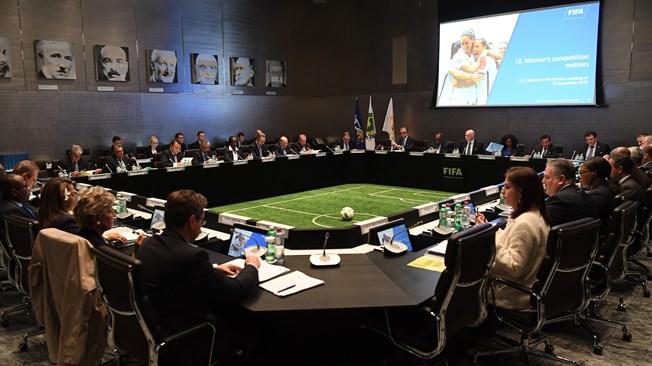By Andrew Warshaw
November 12 – Former English Football Association chairman Greg Clarke, who resigned on Monday, has bowed to the inevitable and also relinquished his positions as a FIFA vice-president and a FIFA Council member in what was an apparent u-turn.
Clarke left his job after four years as head of the FA on Tuesday after using “unacceptable” language in a variety of offensive comments about minority groups
On Wednesday he told the BBC he would stay on as UEFA’s representative at FIFA until March next year but has now resigned that post after a conversation with UEFA president Aleksander Ceferin.
Clarke was elected as a vice-president of football’s world governing body in February 2019, taking over from David Gill, but now gives up the $250,000 a year post.
A statement from UEFA read: “Following telephone call this morning between UEFA President and Greg Clarke, they agreed with Greg Clarke’s proposal that he should step down with immediate effect from position as UEFA representative on FIFA Council.”
Clarke was one of three European FIFA vice-presidents among the eight across six confederations and FIFA had indicated a somewhat different approach to UEFA’s apparent initial reluctance to let Clarke go, gently reminding him that he was free to leave its ruling Council.
“FIFA’s zero tolerance position on discrimination remains steadfast and clear: any form of discrimination, including racism, sexism and homophobia, has no place in football,” a spokesman was quoted as saying.
“In the circumstances and given the nature of his comments, FIFA considers that Mr Clarke did the right thing to resign as Chairman of the FA on Tuesday.
“Mr Clarke was elected to his position on the FIFA Council by UEFA and his term of office runs until 2023. He is, of course, free to resign from the FIFA Council, just as he has resigned as Chairman of the FA. It is for Mr Clarke to take that decision.”
UEFA would not have been keen to lose a key seat on the FIFA Council until the vacancy was filled.
In all likelihood what will happen now is that at its next meeting on December 3, the UEFA executive committee will select an interim person to take Clarke’s place on the top table at FIFA.
It is understood, however, that whoever is given the Council role on a temporary basis would not automatically double up as Clarke’s replacement as a FIFA vice-president.
That will probably not happen until UEFA’s annual Congress in March in Geneva – nominated by the four British associations who still enjoy the special privilege of having their own FIFA VP though these days under the auspices of UEFA. However, Clarke’s gaffe and subsequent removal does raise the opportunity for renewed questions regarding that privilege and England’s role within the politically driven administrative structures of UEFA and FIFA.
Contact the writer of this story at moc.l1744323499labto1744323499ofdlr1744323499owedi1744323499sni@w1744323499ahsra1744323499w.wer1744323499dna1744323499

